
Luxor: The Timeless City of Pharaohs and Temples
Nestled on the banks of the Nile River, Luxor is an open-air museum that transports visitors back to the era of ancient Egypt. Once known as Thebes, the city was the capital of the New Kingdom and is home to some of the most significant archaeological sites in the world. Walking through Luxor, you can almost hear the whispers of pharaohs and gods who once ruled this land. The east bank of Luxor is where you'll find the vibrant city life. The Luxor Temple stands majestically in the heart of the city, while the Karnak Temple complex, the largest religious building ever constructed, is just a short distance away. These temples are adorned with colossal statues, towering obelisks, and intricate hieroglyphics that tell the stories of ancient gods and kings. Cross the Nile to the west bank, and you'll step into the realm of the afterlife. The Valley of the Kings is a labyrinth of tombs carved into the cliffs, the most famous being the tomb of Tutankhamun. Nearby, the mortuary temple of Queen Hatshepsut, with its stunning colonnaded design, stands as a testament to one of Egypt's most successful female pharaohs. The Colossi of Memnon, two massive stone statues, greet you as silent sentinels guarding the ancient necropolis. Luxor is not just about history; it's also about experiencing the vibrant culture of modern Egypt. From bustling markets to serene felucca rides on the Nile, there's something for everyone. The city offers a unique blend of the ancient and the contemporary, making it a must-visit destination for any traveler.
Local tips in Luxor
- Visit the temples early in the morning to avoid the crowds and the midday heat.
- Hire a knowledgeable local guide to enrich your understanding of Luxor's historical sites.
- Take a sunset felucca ride on the Nile for a peaceful and scenic experience.
- Wear comfortable walking shoes as many of the sites require a lot of walking.
- Don't forget to haggle in the local markets; it's a common practice and can be fun.
Neighbourhoods in Luxor
Luxor: The Timeless City of Pharaohs and Temples
Nestled on the banks of the Nile River, Luxor is an open-air museum that transports visitors back to the era of ancient Egypt. Once known as Thebes, the city was the capital of the New Kingdom and is home to some of the most significant archaeological sites in the world. Walking through Luxor, you can almost hear the whispers of pharaohs and gods who once ruled this land. The east bank of Luxor is where you'll find the vibrant city life. The Luxor Temple stands majestically in the heart of the city, while the Karnak Temple complex, the largest religious building ever constructed, is just a short distance away. These temples are adorned with colossal statues, towering obelisks, and intricate hieroglyphics that tell the stories of ancient gods and kings. Cross the Nile to the west bank, and you'll step into the realm of the afterlife. The Valley of the Kings is a labyrinth of tombs carved into the cliffs, the most famous being the tomb of Tutankhamun. Nearby, the mortuary temple of Queen Hatshepsut, with its stunning colonnaded design, stands as a testament to one of Egypt's most successful female pharaohs. The Colossi of Memnon, two massive stone statues, greet you as silent sentinels guarding the ancient necropolis. Luxor is not just about history; it's also about experiencing the vibrant culture of modern Egypt. From bustling markets to serene felucca rides on the Nile, there's something for everyone. The city offers a unique blend of the ancient and the contemporary, making it a must-visit destination for any traveler.
When is the best time to go to Luxor?
Iconic landmarks you can’t miss
Luxor Temple
Explore Luxor Temple, a majestic monument in Luxor, Egypt, revealing the grandeur and spirituality of the New Kingdom and ancient Thebes.
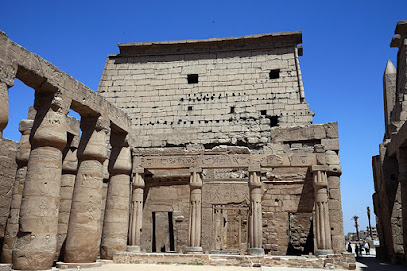
Karnak
Explore Karnak Temple, the largest religious complex in the world, a testament to ancient Egypt's grandeur and the enduring legacy of its pharaohs.
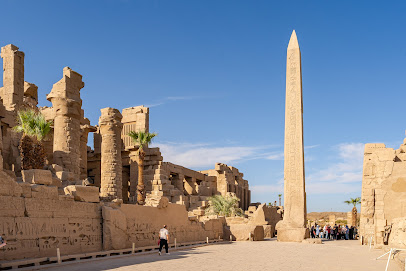
Mortuary Temple of Hatshepsut
Explore the majestic Mortuary Temple of Hatshepsut in Luxor, a unique monument to an extraordinary female pharaoh and a masterpiece of ancient Egyptian architecture.
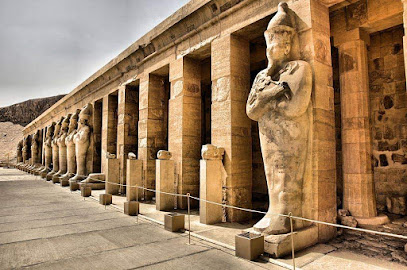
Luxor Museum
Discover ancient Thebes at the Luxor Museum: a curated collection of Egyptian antiquities, from statues to royal mummies, on the Nile's East Bank.
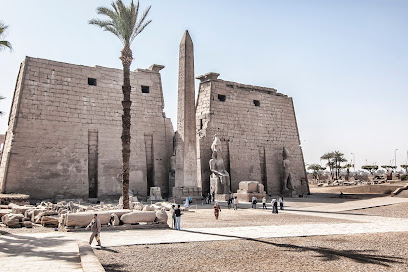
Mummification Museum
Explore the fascinating world of ancient Egyptian mummification in Luxor, discovering the rituals, tools, and beliefs surrounding this ancient practice.
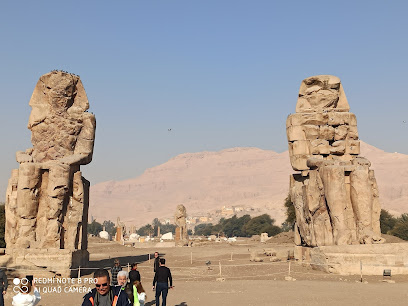
Valley of the Kings, Luxor
Explore the royal tombs of pharaohs in Luxor's Valley of the Kings, a UNESCO World Heritage site and a window into ancient Egyptian beliefs.
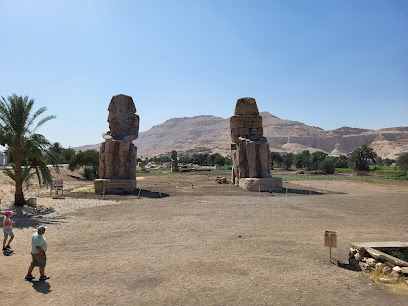
Mut Temple
Explore the Temple of Mut in Luxor, an ancient sanctuary dedicated to the powerful goddess of motherhood and protection.
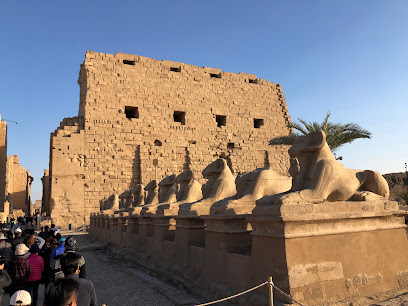
El - Souk
Experience the vibrant culture of Luxor at El-Souk: a traditional market offering crafts, spices, and a taste of Egyptian life.
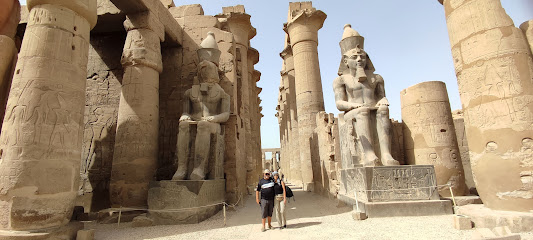
Avenue of the Rams
Walk the path of pharaohs on Luxor's Avenue of the Rams, a majestic ancient processional route connecting Karnak and Luxor Temples.
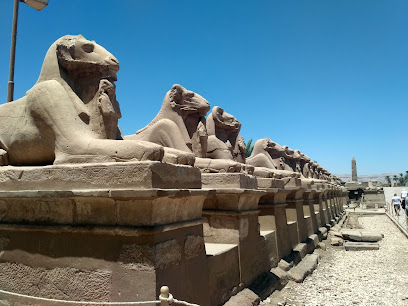
Temple Of Khonsu
Explore the Temple of Khonsu in Luxor's Karnak complex: a testament to ancient Egyptian artistry and lunar worship dedicated to the moon god.
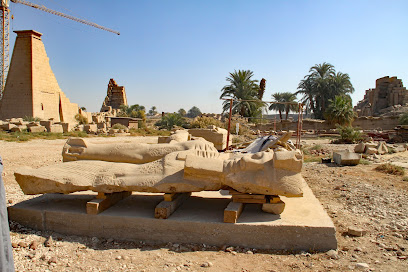
First Pylon
Enter the Karnak Temple through the colossal First Pylon, a monumental gateway built by Ramses II, and witness the grandeur of ancient Egypt.
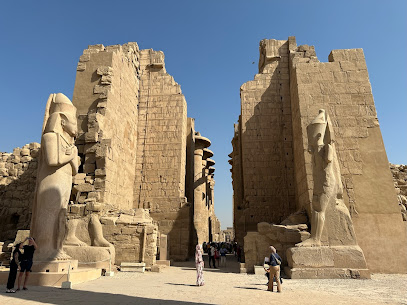
First Pylon Luxor Temple
Discover the First Pylon at Luxor Temple, a majestic gateway to ancient Egyptian history, art, and religious traditions. A must-see landmark in Luxor.
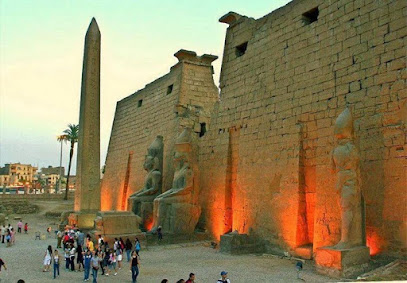
Luxor city - Egypt
Explore Luxor: where ancient pharaohs' legacies meet vibrant modern Egyptian life along the majestic Nile River.
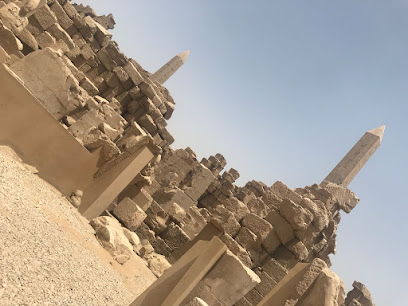
Remaining Luxor Obelisk
Witness the grandeur of ancient Egypt at the Remaining Luxor Obelisk, a towering monument adorned with hieroglyphs, steeped in history and mystery.
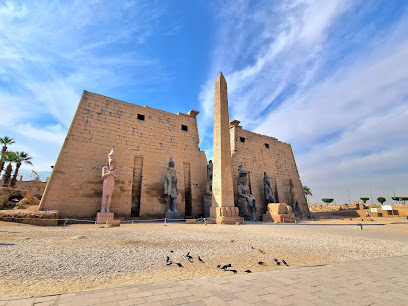
Luxor Egypt
Explore Luxor, Egypt: Uncover ancient wonders, majestic temples, and royal tombs in the world's greatest open-air museum on the Nile's banks.
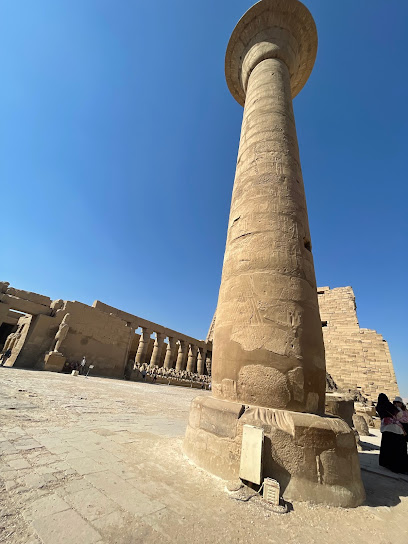
Unmissable attractions to see
Luxor Temple
Explore Luxor Temple, an archaeological gem in Egypt, where ancient history comes alive through breathtaking architecture and rich cultural heritage.
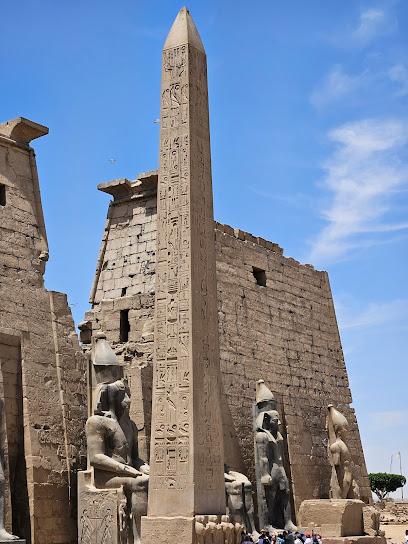
Karnak
Experience the grandeur of Karnak, an ancient temple complex in Luxor that showcases the rich history and culture of Egypt's remarkable civilization.
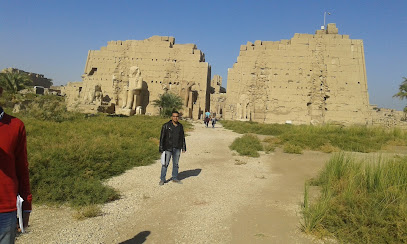
Mortuary Temple of Hatshepsut
Discover the awe-inspiring Mortuary Temple of Hatshepsut, a historical landmark showcasing ancient Egyptian architecture and the story of a remarkable female pharaoh.
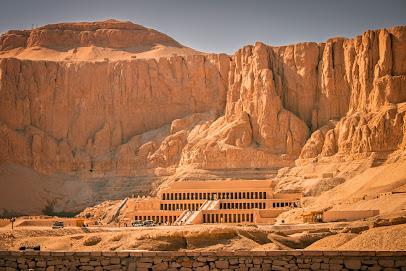
Valley of the Kings
Discover the Valley of the Kings, a UNESCO site in Luxor, Egypt, home to the tombs of pharaohs and a rich tapestry of ancient history.
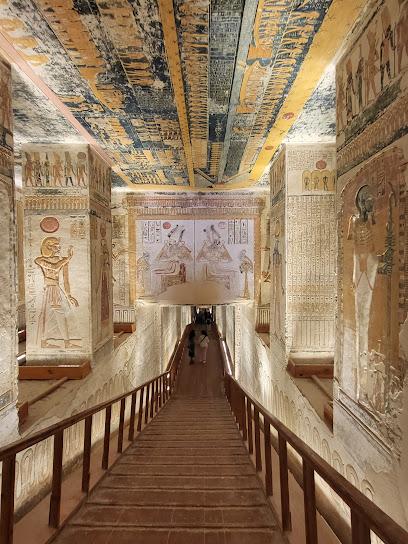
Amenhotep III Sun Temple
Explore the breathtaking ruins of the Amenhotep III Sun Temple in Luxor, a captivating glimpse into ancient Egyptian civilization and its architectural marvels.
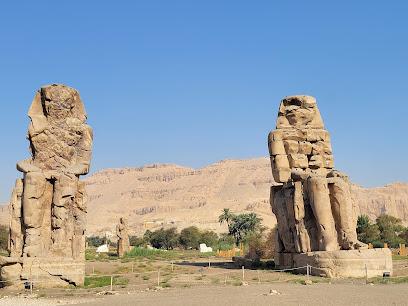
Luxor Museum
Discover the treasures of ancient Egypt at the Luxor Museum, a premier destination for history lovers in Luxor.
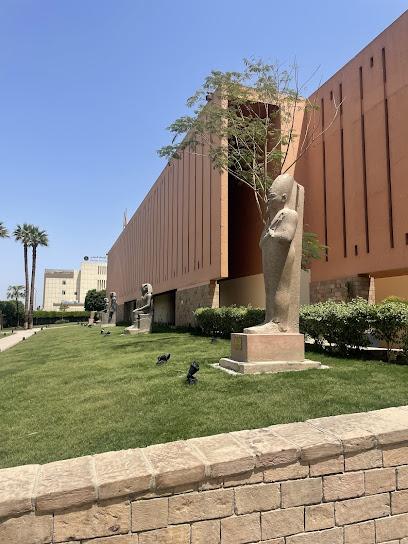
Banana Island Sara
Experience tranquility and natural beauty at Banana Island Sara, a lush paradise in Al Qarna, Luxor Governorate, perfect for all nature lovers.
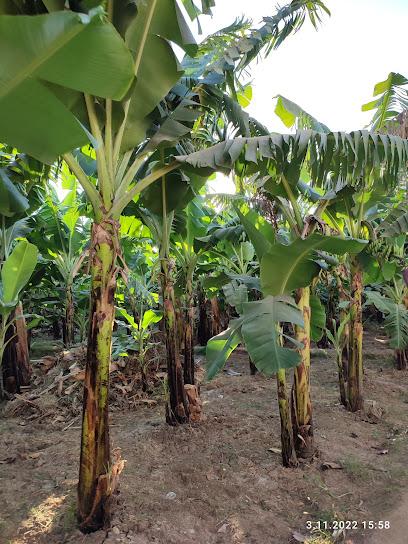
Jolie Ville Resort & SPA kings Island Luxor
Experience unparalleled luxury and serenity at Jolie Ville Resort & SPA, nestled on Kings Island in Luxor, Egypt, perfect for relaxation and exploration.

Temple of Khnum
Discover the ancient wonders of Esna at the Temple of Khnum, a historical landmark steeped in history and architectural marvel.
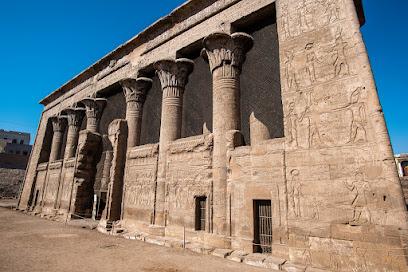
Valley of the Queens
Discover the Valley of the Queens in Luxor, Egypt, a mesmerizing site of ancient tombs filled with exquisite art and rich history.
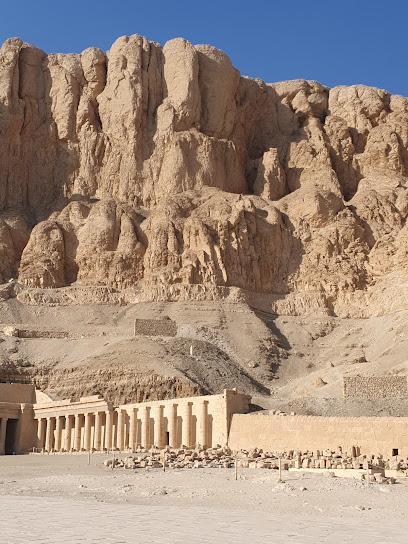
Abou al-Haggag Mosque
Explore the architectural beauty and spiritual significance of Abou al-Haggag Mosque in Luxor, a must-visit for every traveler seeking cultural immersion.
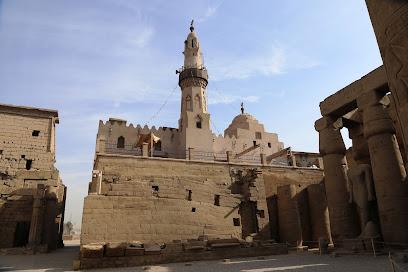
West Bank Luxor Boat booking Dahabiya Nile cruise
Embark on a luxurious Dahabiya Nile cruise from West Bank Luxor and explore the wonders of ancient Egypt in style and comfort.
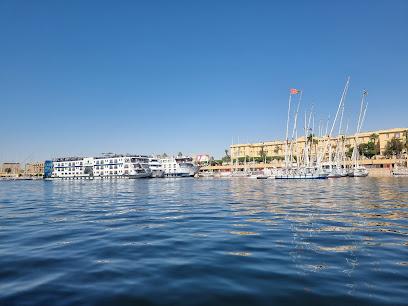
Sound & Light
Immerse yourself in the ancient history of Egypt at the captivating Sound & Light Show at Karnak Temple in Luxor.
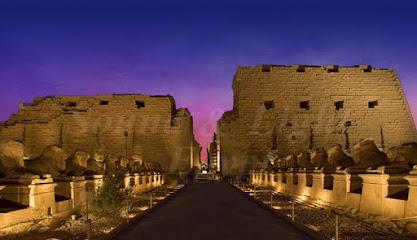
Mortuary Temple of Seti I
Explore the Mortuary Temple of Seti I in Luxor, a historical landmark showcasing ancient Egyptian artistry and grandeur in the heart of Al Qarnah.
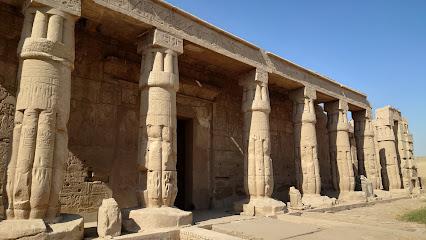
Deir el-Medina
Discover the ancient artisan village of Deir el-Medina, a historic gem near Luxor that reveals the secrets of Egypt's skilled craftsmen.
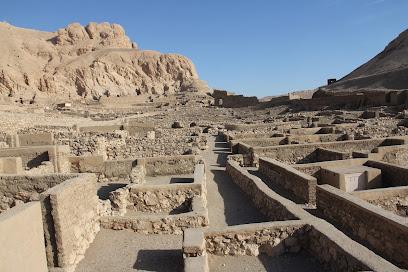
Essential places to dine
Sofra
Experience the vibrant flavors of Egypt at Sofra, where traditional meat dishes meet modern café culture in Luxor.
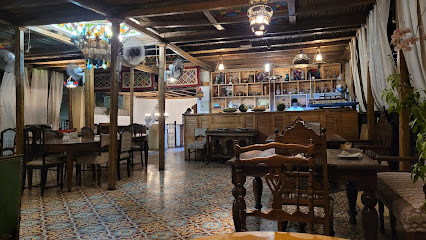
Al Sahaby Lane Restaurant
Discover authentic Egyptian cuisine at Al Sahaby Lane Restaurant in Luxor—where tradition meets flavor in an inviting setting.
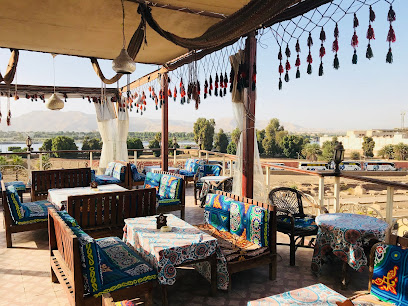
El Hussein Restaurant
Discover authentic Egyptian flavors at El Hussein Restaurant in Karnak, Luxor – where every bite tells a story.
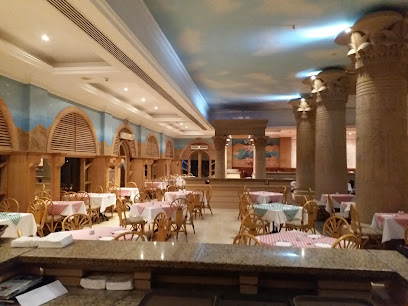
Restaurant El-Kababgy Luxor
Experience authentic Egyptian cuisine at El-Kababgy Luxor, where every meal is a flavorful journey along the Nile.
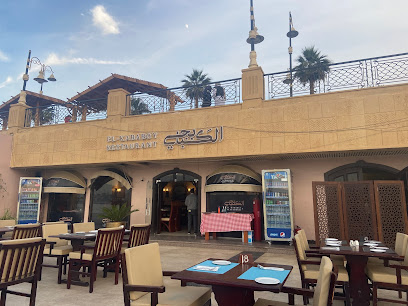
PIZZA ROMA . IT
Experience authentic Italian flavors at Pizza Roma in Luxor - where fresh ingredients meet culinary passion in a cozy setting.
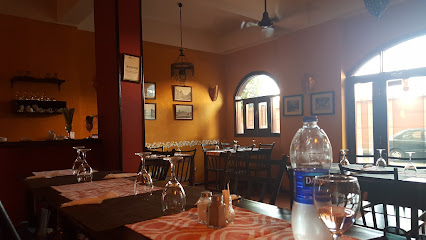
مطعم سنوبس Snobs Restaurant
Discover exquisite Egyptian flavors at Snobs Restaurant in Luxor – where tradition meets modern dining.
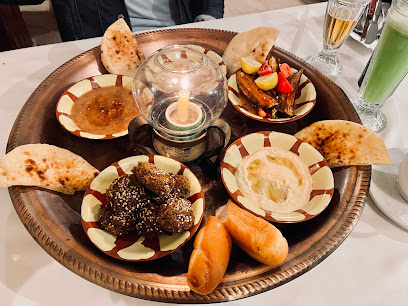
Aisha restaurant Luxor
Experience authentic Egyptian cuisine at Aisha Restaurant Luxor – where every dish tells a story amidst breathtaking views.
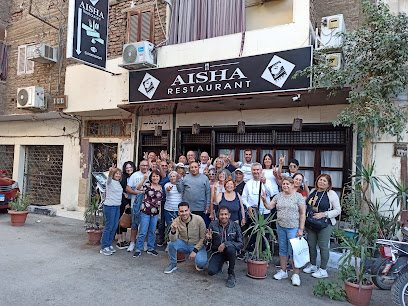
مطعم دوار الشمس Sunflower Restaurant
Experience authentic Egyptian flavors at Sunflower Restaurant, where quality meets affordability in the heart of Luxor.
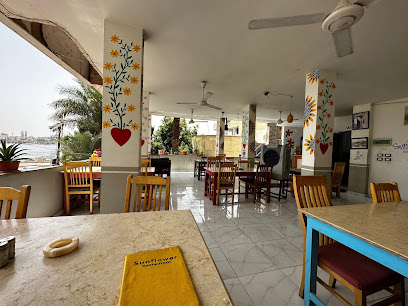
Aboudi Coffee Break
Experience authentic Egyptian flavors at Aboudi Coffee Break in Luxor—where great food meets warm hospitality.
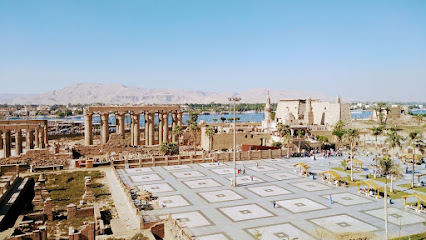
مطعم الميناء Almina Restaurant
Experience exquisite dining at Almina Restaurant: where Japanese Izakaya meets fast food in the heart of Luxor.
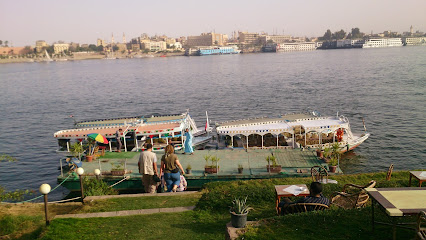
Maxime's El Saltana café
Discover authentic Egyptian flavors at Maxime's El Saltana Café in Luxor – where tradition meets taste.
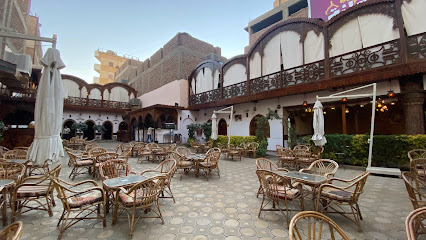
Nubian House
Experience authentic Egyptian cuisine at Nubian House in Luxor - where tradition meets taste.
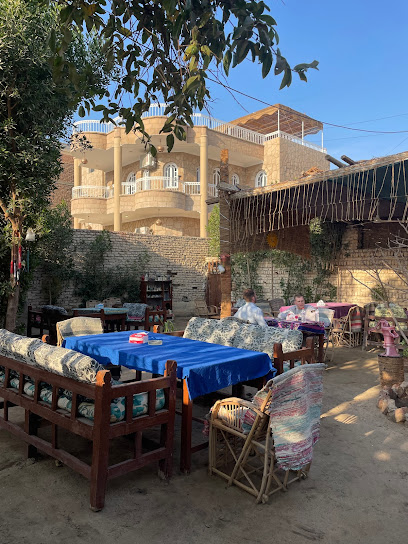
A Taste of India
Discover authentic Indian cuisine at A Taste of India in Luxor - where rich flavors meet cultural ambiance for an unforgettable dining experience.
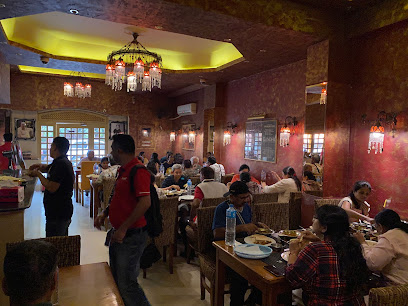
Oasis Palace
Savor exquisite meat dishes at Oasis Palace in Luxor – where culinary excellence meets rich Egyptian heritage.
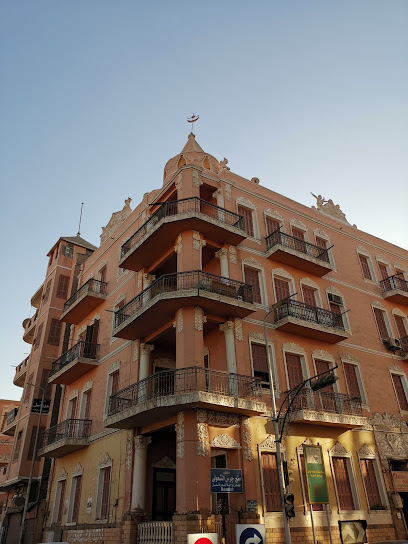
مطعم توت عنخ امون Tout Ankh Amoun Restaurant
Savor delectable Egyptian cuisine with breathtaking Nile views at Tout Ankh Amoun Restaurant in Luxor.
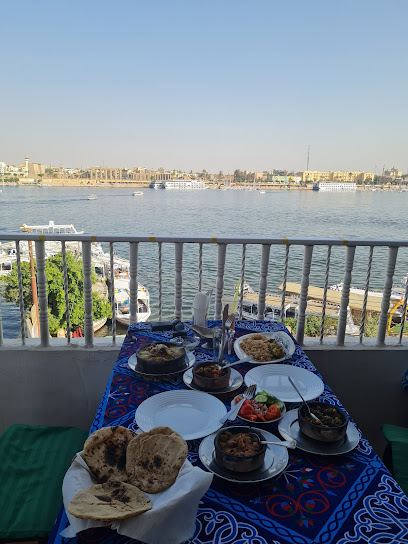
Markets, malls and hidden boutiques
Luxor Fruit and Vegetable Market
Explore the Luxor Fruit and Vegetable Market, a vibrant hub of fresh produce and local culture, brimming with colors and flavors unique to Egypt.
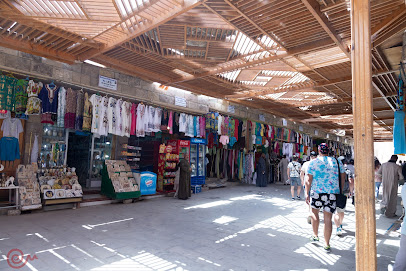
Ata Bazar
Explore Ata Bazar: Luxor's premier destination for authentic handicrafts, antiques, and jewelry reflecting Egypt's rich heritage.
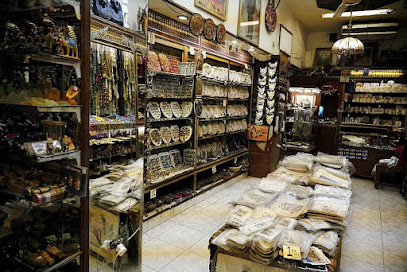
SHOP SANDOUK . HandCrafts/FairTrade
Discover the essence of Egyptian craftsmanship at Shop Sandouk, a premier destination for authentic handicrafts and fair-trade souvenirs in Luxor.
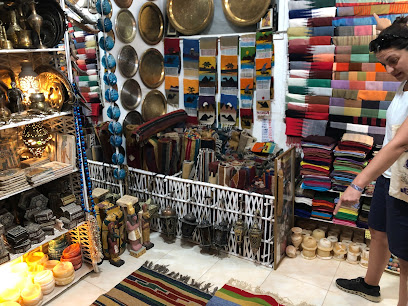
Nobles Art Gallery
Explore the exquisite collection of antiques and art at Nobles Art Gallery, a cultural gem in Luxor, Egypt, showcasing the rich artistic heritage of the region.
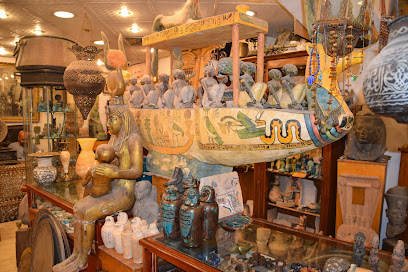
Habiba Gallery
Explore the rich cultural heritage of Egypt through unique handcrafted treasures at Habiba Gallery in Luxor.
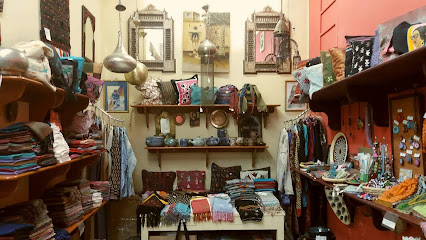
Old Shop
Explore Old Shop in Luxor for exquisite silver jewelry, unique stone carvings, and authentic Egyptian craftsmanship in a charming setting.

Gaddis & Co.
Discover unique souvenirs and local craftsmanship at Gaddis & Co., the charming gift shop along the Nile in Luxor.
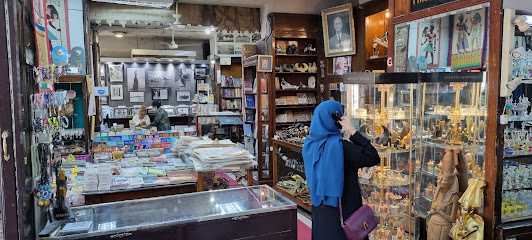
Hassle Free Shop
Explore the enchanting Hassle Free Shop in Luxor, the perfect destination for unique books, antiques, and souvenirs reflecting Egyptian culture.
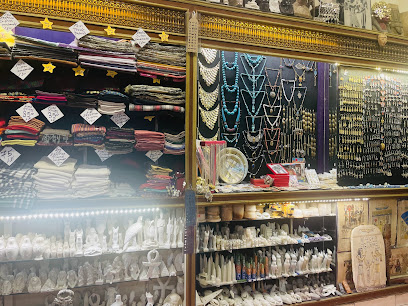
Fair Trade Center
Discover Luxor's Fair Trade Center, where authentic handicrafts and ethical shopping come together to celebrate Egypt's rich artisan culture.
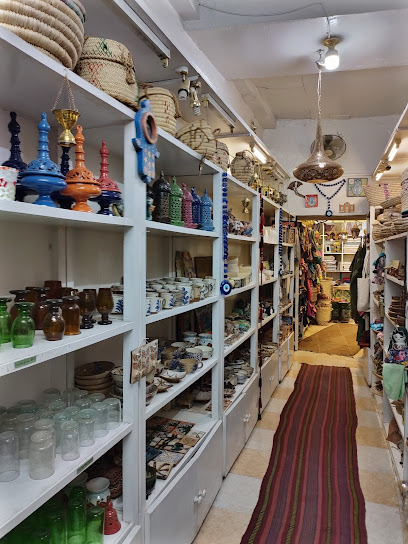
أبو وحيد للإستيراد والتصدير
Explore Abu Wahid, Luxor's premier souvenir store, for authentic Egyptian crafts and unforgettable shopping experiences.
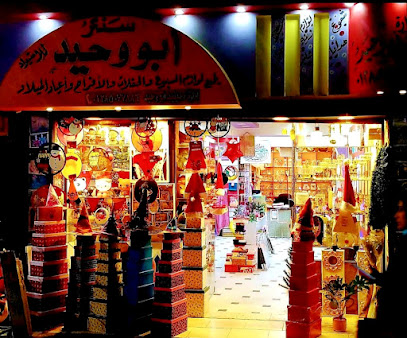
El Fashny Shop - متجر الفشني
Discover unique Egyptian gifts and souvenirs at El Fashny Shop in Luxor, where tradition meets artistry in a charming shopping experience.
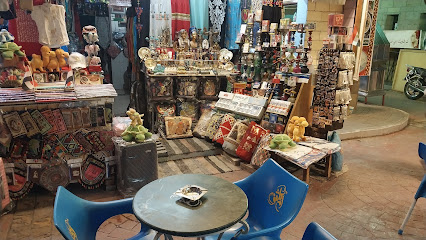
Pr-Ba Concept Store (Luxor)
Explore the Pr-Ba Concept Store in Luxor for unique handicrafts and souvenirs that capture the essence of Egyptian culture.
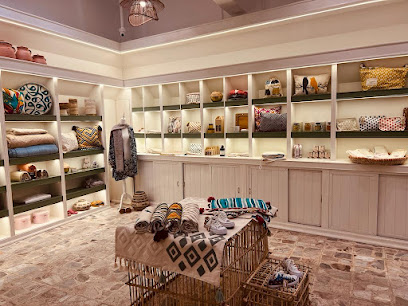
No Name Store
Explore Luxor's fashion scene at No Name Store, where local craftsmanship meets contemporary style in men's clothing and accessories.
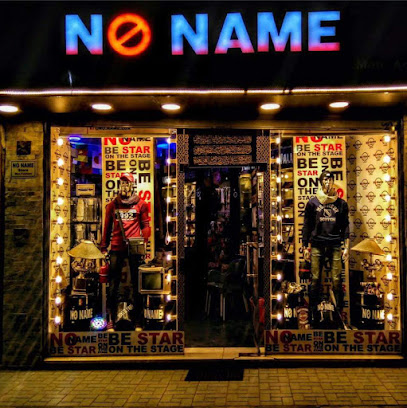
Lotus Bazar
Explore Lotus Bazar in Luxor for unique fashion accessories, exquisite jewelry, and enchanting perfumes that embody the essence of Egyptian craftsmanship.

Sam House Luxor gold and silver smith
Explore the exquisite craftsmanship of gold and silver jewelry at Sam House Luxor, where tradition meets elegance in every piece.
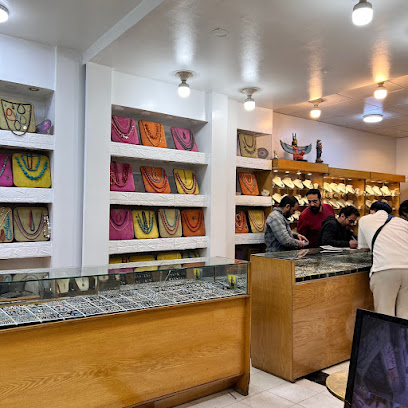
Essential bars & hidden hideouts
Al Sahaby Lane Restaurant
Experience the essence of Egyptian cuisine at Al Sahaby Lane Restaurant in Luxor, where authentic flavors and warm hospitality come together.
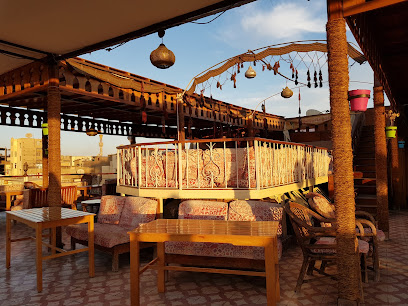
Maxime's El Saltana café
Discover Maxime's El Saltana Café in Luxor – where tradition meets flavor in a cozy ambiance perfect for every traveler.
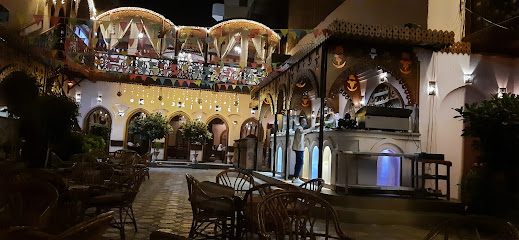
Oasis Palace
Experience the rich flavors of Egyptian cuisine at Oasis Palace, Luxor's top meat restaurant, perfect for a culinary adventure.
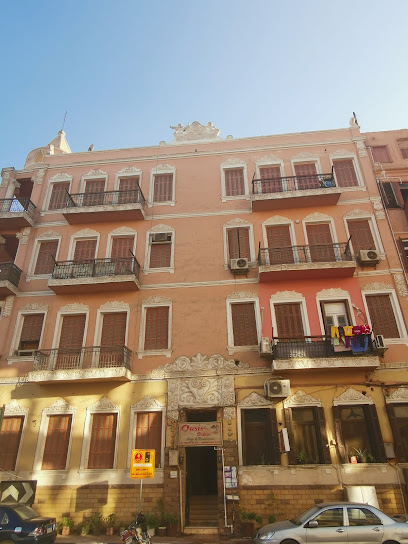
The Lantern Room Restaurant
Experience the flavors of Egypt at The Lantern Room Restaurant in Luxor, where delightful dishes and an inviting atmosphere await.
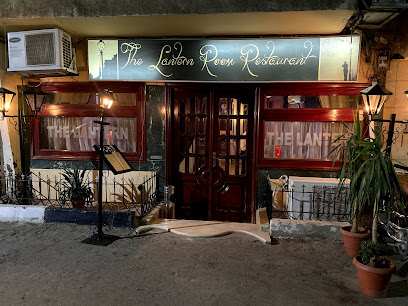
The King's Head Pub
Discover the vibrant ambiance of The King's Head Pub in Luxor, where local culture meets international charm for a unique social experience.
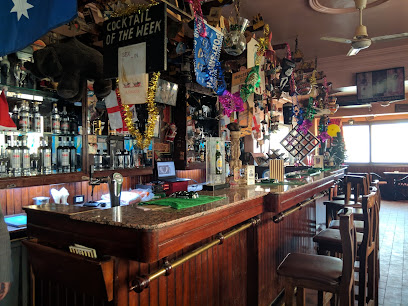
SunRise Bar & Restaurant Luxor
Discover the lively ambiance of SunRise Bar & Restaurant in Luxor, where diverse cuisines meet vibrant entertainment for an unforgettable experience.
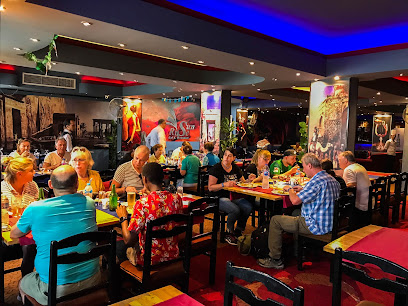
Kam Thai
Experience the vibrant and authentic flavors of Thailand at Kam Thai, a must-visit restaurant in Luxor.
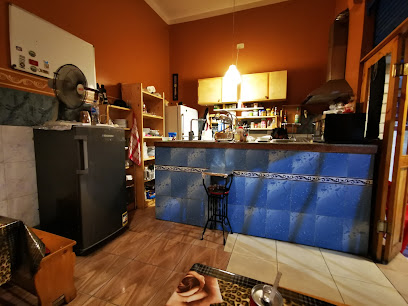
ميرفيس الأيرلندية بار Murphys Irish Bar
Immerse yourself in the authentic charm of Murphys Irish Bar, a cozy Irish pub in Luxor offering great drinks, food, and friendly vibes.
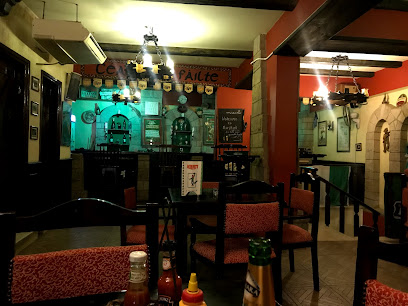
El-Gezira Hotel & Restaurant
Experience the luxury of El-Gezira Hotel & Restaurant, a vibrant hub of relaxation and entertainment along the Nile in Luxor.
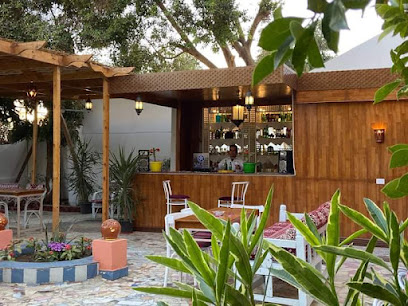
Bar & Byke Rent, West Luxor
Experience the perfect fusion of relaxation and adventure at Bar & Byke Rent in West Luxor, where refreshing drinks and bike rentals await.
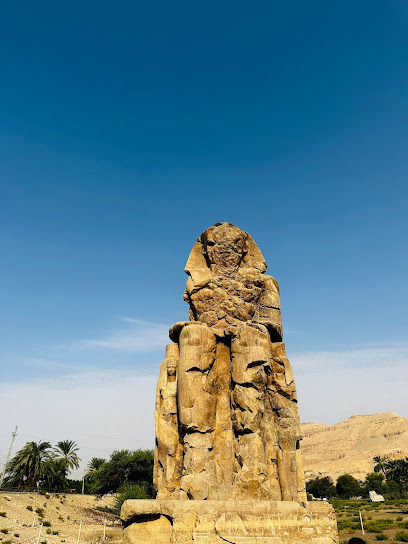
انتيكةAntika
Discover Antika, Luxor's vibrant cocktail bar, where exquisite drinks and lively ambiance create unforgettable moments.
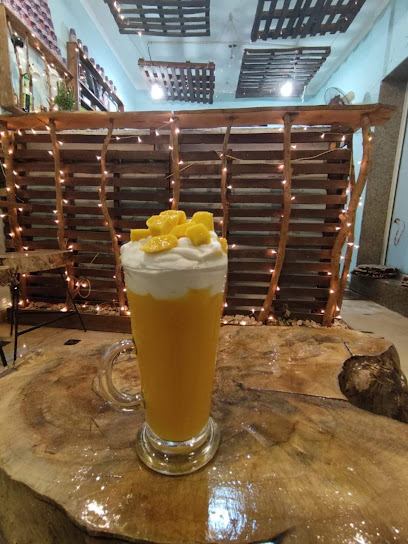
مطعم وبار جورجينا Georgina Restaurant & Bar
Discover the delightful fusion of Japanese izakaya cuisine in Luxor at Georgina Restaurant & Bar, where every meal is a culinary journey.

Royal Bar
Experience the charm of Luxor at Royal Bar, where exquisite drinks and stunning Nile views create unforgettable memories.
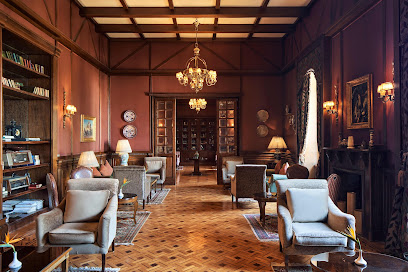
G.old
Experience Luxor's vibrant nightlife at G.old, a lively bar offering refreshing drinks and a welcoming atmosphere for tourists and locals alike.
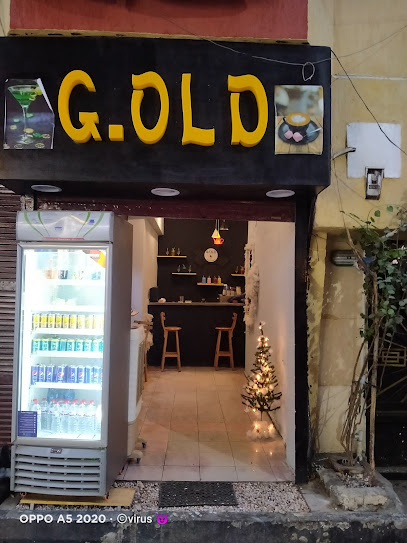
Travel experiences inspired by this city
Explore more travel diariesLocal Phrases
-
- Helloمرحبا
[marhaba] - Goodbyeوداعا
[wadaa'an] - Yesنعم
[naam] - Noلا
[laa] - Please/You're welcomeمن فضلك
[min fadlak] - Thank youشكرا
[shukran] - Excuse me/Sorryعذرا
[a'ethran] - How are you?كيف حالك؟
[kaifa halak?] - Fine. And you?بخير. وأنت؟
[bi-khayr. wa-ant?] - Do you speak English?هل تتكلم الإنجليزية؟
[hal tatakallam al-ingliziyya?] - I don't understandأنا لا أفهم
[ana la afham]
- Helloمرحبا
-
- I'd like to see the menu, pleaseأريد أن أرى القائمة، من فضلك
[uriidu an araa al-qa'imah, min fadlak] - I don't eat meatأنا لا آكل اللحم
[ana la aakulu al-lahm] - Cheers!في صحتك!
[fi sahtik!] - I would like to pay, pleaseأريد أن أدفع، من فضلك
[uriidu an adfa', min fadlak]
- I'd like to see the menu, pleaseأريد أن أرى القائمة، من فضلك
-
- Help!النجدة!
[al-najdah!] - Go away!إرحل!
[irhal!] - Call the Police!اتصل بالشرطة!
[ataassal bialshurta!] - Call a doctor!اتصل بالطبيب!
[ataassal bialtabib!] - I'm lostلقد ضللت الطريق
[laqad dalalt al-tariq] - I'm illأنا مريض
[ana mareed]
- Help!النجدة!
-
- I'd like to buy...أريد أن أشتري...
[uriidu an ashtari...] - I'm just lookingأنا فقط أتفرج
[ana faqat atfarrag] - How much is it?كم سعره؟
[kam si'ruh?] - That's too expensiveهذا غالي جدا
[hatha ghali jiddan] - Can you lower the price?هل يمكنك خفض السعر؟
[hal yumkinuka khafd al-si'ru?]
- I'd like to buy...أريد أن أشتري...
-
- What time is it?كم الوقت؟
[kam al-waqt?] - It's one o'clockالواحدة
[al-wahidah] - Half past (10)العاشرة والنصف
[al-'ashirah wa-al-nisf] - Morningصباح
[sabah] - Afternoonبعد الظهر
[ba'd al-dhuhur] - Eveningمساء
[masa] - Yesterdayأمس
[ams] - Todayاليوم
[alyawm] - Tomorrowغدا
[ghadan] - 1واحد
[wahid] - 2اثنان
[ithnan] - 3ثلاثة
[thalatha] - 4أربعة
[arba'ah] - 5خمسة
[khamsah] - 6ستة
[sittah] - 7سبعة
[sab'ah] - 8ثمانية
[thamania] - 9تسعة
[tis'ah] - 10عشرة
[asharah]
- What time is it?كم الوقت؟
-
- Where's a/the...?أين ال...؟
[ayn al...?] - What's the address?ما هو العنوان؟
[ma huwa al-unwan?] - Can you show me (on the map)?هل يمكنك أن تريني (على الخريطة)؟
[hal yumkinuka an turini (ala al-kharitah)?] - When's the next (bus)?متى الحافلة القادمة؟
[mata al-hafilah al-qadimah?] - A ticket (to ....)تذكرة (إلى ....)
[tadhkirah (ila ....)]
- Where's a/the...?أين ال...؟
History of Luxor
-
Luxor, known in ancient times as Thebes, was established as a significant city during the Old Kingdom period (c. 2686–2181 BCE). The city rose to prominence as the capital of Egypt during the Middle and New Kingdoms. It served as a religious and political hub, with its influence stretching across the ancient world.
-
One of the most remarkable construction projects in Luxor’s history is the Karnak Temple Complex. Initiated during the reign of Senusret I in the Middle Kingdom (c. 2055–1650 BCE), the complex was continuously expanded by various pharaohs over nearly 2,000 years. It is dedicated to the Theban triad of Amun, Mut, and Khonsu and remains the largest religious building ever constructed.
-
During the New Kingdom (c. 1550–1070 BCE), the pharaohs chose the West Bank of the Nile in Luxor as their final resting place. The Valley of the Kings became the royal necropolis, housing the tombs of illustrious pharaohs, including Tutankhamun, Seti I, and Ramses II. This burial ground reflects the grandeur and artistry of ancient Egyptian civilization.
-
Hatshepsut, one of Egypt’s few female pharaohs, ruled during the 18th Dynasty (c. 1479–1458 BCE). She commissioned numerous building projects in Luxor, including her mortuary temple at Deir el-Bahari. This temple is renowned for its unique architecture and stunning reliefs depicting her divine birth and expedition to the Land of Punt.
-
The Colossi of Memnon are two massive stone statues of Pharaoh Amenhotep III, erected around 1350 BCE. These statues originally guarded his mortuary temple, which was among the largest in Egypt. Although the temple has largely disappeared, the Colossi remain as a testament to Amenhotep III's grandeur.
-
Luxor Temple, primarily built by Amenhotep III and later expanded by Ramses II, was a central part of Thebes’ religious life. Unlike other temples in Luxor, it was not dedicated to a specific god but to the rejuvenation of kingship. The temple’s avenue of sphinxes, grand colonnades, and intricate carvings highlight its significance in ancient Egyptian culture.
-
The Opet Festival was one of the most important annual religious events in Thebes. It celebrated the journey of the god Amun, his consort Mut, and their son Khonsu from Karnak to Luxor Temple. The festival, lasting up to 27 days, involved elaborate processions, rituals, and celebrations, reflecting the religious fervor of the ancient Egyptians.
-
In 1922, British archaeologist Howard Carter discovered the virtually intact tomb of Pharaoh Tutankhamun in the Valley of the Kings. This discovery was one of the most significant archaeological finds of the 20th century, revealing a wealth of artifacts and providing invaluable insights into ancient Egyptian burial practices and art.
Luxor Essentials
-
Luxor is accessible by air, road, and rail. The easiest way to reach Luxor is by flying into Luxor International Airport (LXR), which has regular flights from Cairo and some international destinations. From Cairo, you can also take an overnight train or a bus, with train journeys typically taking around 9-11 hours and buses slightly longer. For those already in Egypt, driving to Luxor is an option, with well-maintained highways connecting it to major cities.
-
Within Luxor, you have several transportation options: taxis, minibuses, horse-drawn carriages (calèches), and boats for crossing the Nile. Taxis are plentiful and relatively inexpensive, but it's advisable to agree on a fare before starting your journey. Minibuses follow set routes and are a cost-effective way to get around. For a more leisurely pace, consider a calèche ride, but make sure to negotiate the price in advance. To cross the Nile, public ferries and private motorboats are available.
-
The official currency in Egypt is the Egyptian Pound (EGP). Credit cards are widely accepted in hotels, restaurants, and larger shops, but it's a good idea to carry cash for smaller purchases and tips. ATMs are available throughout Luxor, especially in tourist areas. It's advisable to have some small denominations for tipping and minor expenses.
-
Luxor is generally safe for tourists, but it's wise to take standard precautions. Avoid walking alone at night, especially in less crowded areas. Be cautious of pickpockets in busy markets and tourist spots. Areas like the east bank near the train station and some parts of the west bank are known for minor scams and aggressive touts. Always keep an eye on your belongings and be aware of your surroundings.
-
In case of emergency, dial 122 for police, 123 for ambulance, and 180 for fire services. Luxor has several hospitals, including Luxor International Hospital and El-Moamena El-Mohamady Hospital. It's advisable to have travel insurance that covers medical emergencies. Pharmacies are readily available for minor health issues, and many pharmacists speak English.
-
Fashion: Do dress modestly, especially when visiting religious sites. Avoid wearing revealing clothing. Religion: Do respect local customs and traditions. When visiting mosques, remove your shoes and dress modestly. Public Transport: Do be respectful and give up your seat to elderly passengers. Don’t eat or drink on public transport. Greetings: Do greet people with a handshake. It’s customary to use the right hand for greetings, giving, and receiving. Eating & Drinking: Do try local delicacies and accept food offerings graciously. Don’t refuse hospitality; it is considered impolite.
-
To experience Luxor like a local, visit the local markets such as the Souq at El-Souk Street where you can find fresh produce, spices, and traditional Egyptian goods. Engage with locals; they are often friendly and willing to share stories about Luxor’s history and culture. Don’t miss the lesser-known sites like Medinet Habu and the Tombs of the Nobles for a more intimate experience. For a unique view, take a hot air balloon ride at sunrise over the West Bank.
Nearby Cities to Luxor
-
Things To Do in Sohag
-
Things To Do in Aswan
-
Things To Do in Hurghada
-
Things To Do in El Gouna
-
Things To Do in Asyut
-
Things To Do in Marsa Alam
-
Things To Do in Sharm El Sheikh
-
Things To Do in Minya
-
Things To Do in Dahab
-
Things To Do in Beni Suef
-
Things To Do in Suez
-
Things To Do in Eilat
-
Things To Do in Aqaba
-
Things To Do in Tabuk
-
Things To Do in Cairo





























